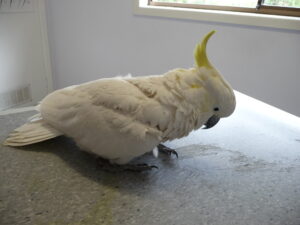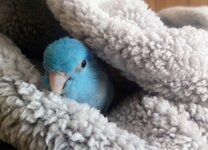millymb21
Member
- Nov 7, 2021
- 28
- 35
- Parrots
- parrotlet
Hi, I have posted a few times on here about my little baby before. He has respiratory issues that have gone on for about half a year now. He has been to 2 different vets. The first vet had him on baytril didn't work and then he went on doxycycline and a steriod in his water. He didn't get better and I wasn't thrilled with the vet so I went to another. I really liked this vet she ran a blood test and said everything was normal and then she did a xray and showed the fluid or whatever he has in his upper lungs. She put him on a medication for 2 weeks. Again it didn't change his illness at all. She said this could be a chronic thing. If this is chronic where exactly do i go from here? Just today I was changing his lining and noticed the green. What is this related to?





